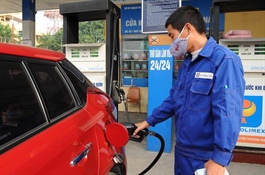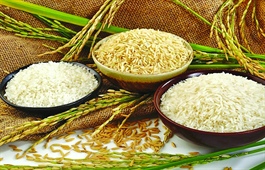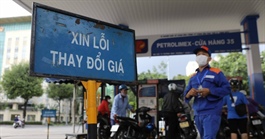Petroleum supply faces tough challenges
Petroleum supply faces tough challenges
The Ministry of Industry and Trade (MoIT) has instructed agencies to ensure the supply of petrol amid tight supply.

MoIT Deputy Minister Do Thang Hai pointed to significant changes in petrol supplies pushing petrol prices up, including the conflict between Russia and Ukraine. Another reason was decreased production at Nghi Son Oil Refinery, one of the two major local refineries, due to the refinery’s financial difficulties.
The Nghi Son refinery used to supply 35-40 per cent of the domestic petrol market, but its output was reduced by 90 per cent of normal in early January, resulting in dropping supplies for petrol traders.
At the Government’s regular monthly press conference last week, Hai said the supply crunch had been seen in some southern provinces, adding that the ministry has assigned 10 businesses to import petrol since early January to fill the shortage.
According to the official, Nghi Son Oil Refinery has promised to run at full capacity from April to ensure domestic supply.
The supply will not be disrupted from the second quarter of this year, even if Nghi Son fails to fulfil its commitment, he said.
In addition, considering the significant increase of oil and petrol prices globally, the MoIT and the Ministry of Finance have discussed solutions to curb the price hike.
Deputy Finance Minister Nguyen Duc Chi said his ministry had sent a document to other agencies and the Viet Nam Petroleum Association to get feedback on a draft resolution on lowering environmental tax on fuel, to submit to the National Assembly’s Standing Committee.
The draft proposed reducing the environmental tax from VND4,000 to 3,000 per litre for petrol (except ethanol), from 2,000 to 1,500 per litre for diesel oil, mazut and lubricants, and from 1,000 to 500 per litre for kerosene.
Chi said if the resolution comes into force from April and domestic retail petrol prices become stable in the remaining nine months of the year, the tax reduction will help to lower the consumer price index by 0.6-0.7 per cent.
Import plan
As petrol prices continue increasing, importers face significant difficulties when policies are not in line with market fluctuations.
If supply from Nghi Son Oil Refinery does not meet plans, the Ministry of Industry and Trade has assigned 10 petroleum businesses to increase their import volume in the next quarter to ensure domestic supply.
However, this output assignment also poses great challenges to businesses, requiring the management agency to have more flexible and realistic operating policies.
In accordance with Decision 242/QD-BCT dated February 24, there will be increased petroleum imports in the second quarter of this year to supplement the shortage from domestic production estimated at 2.4 million cubic metres, including 840,000 million cu.m of gasoline and 1.56 million cu.m of oil.
Petrolimex Deputy General Director Nguyen Xuan Hung said that right after the refinery announced a reduction in output, Petrolimex reviewed the import contracts and started signing contracts from the beginning of this year, before the direction of the Ministry of Industry and Trade.
Petrolimex also signed new contracts in accordance with the quota that the Ministry of Industry and Trade assigned it to import.
Deputy General Director of Military Petrochemical JSC Le Minh Quoc said that the company imported petroleum from four sources: Singapore, Malaysia, Thailand, and Korea. Currently, the company is negotiating with all suppliers to finalise an import plan with the most reasonable price.
Flexible and realistic operation
It should not too difficult to import petroleum to make up for the shortfall in the output of Nghi Son Refinery when most countries have reopened, and the world petroleum supply chain has recovered.
However, with prices continuously increasing, the main petroleum importers face great difficulties when operating policies are not in line with market fluctuations.
One of the 10 petroleum importers assigned to import more said that the surcharge for each barrel of oil imported to Viet Nam had increased by 2-3 times compared to the end of last year, but the State management agencies did not update according to this change.
Many petroleum importers had to reduce discounts for agents to ensure that their business activities did not suffer losses, said the importer.
However, such a discount made dealers not want to do business because the current domestic retail price of petrol was not enough to cover costs they are incurring.
To ensure domestic petroleum supply was not interrupted, the most important solution was for the State management agency to change the price calculation method to follow market movements, he added.




























